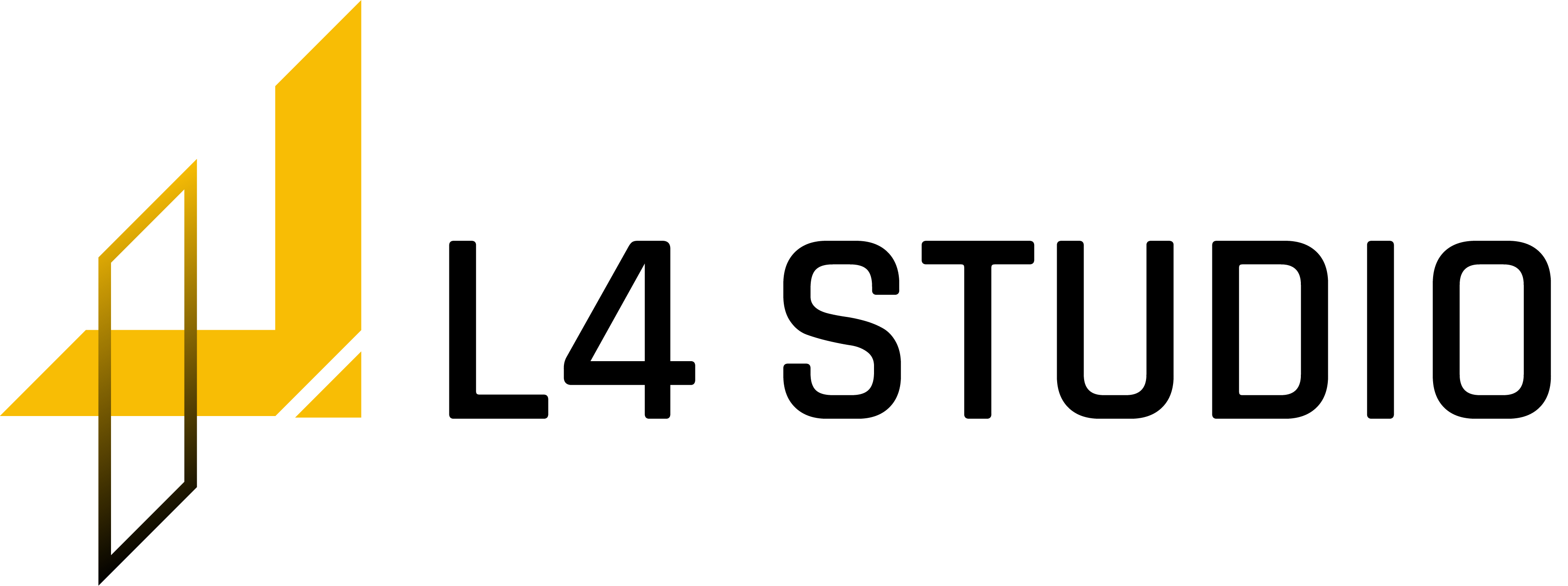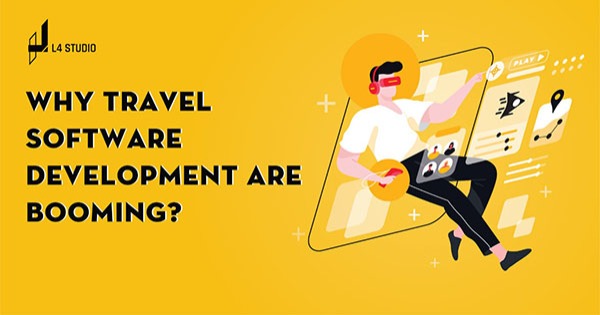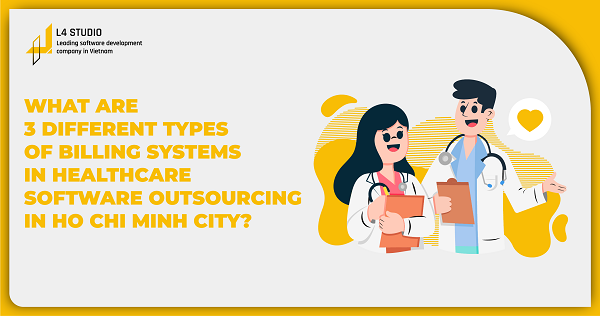
What are 3 different types of billing systems in healthcare software outsourcing in Ho Chi Minh City?
Medical billing is a critical component of the healthcare industry. In the healthcare industry, there are three types of medical billing systems. In this article, our healthcare software outsourcing in Ho Chi Minh City will give you a better understanding of them all as well as a better appreciation for the medical billing industry as a whole.
1. A SHORT INTRODUCTION TO THE BILLING SYSTEM IN HEALTHCARE SOFTWARE OUTSOURCING IN HO CHI MINH CITY
Do you know medical billing software? To begin, consider the definition of medical billing software. Essentially, medical billing software is an add-on to other fully integrated software solutions that is in charge of automating and managing all billing procedures inside the clinical organization.
The process of tracking payments is commonly referred to as a revenue cycle, and it pertains to a comprehensive financial system of a specific healthcare institution that should be well-managed in order to optimize the process and eventually improve financial performance.
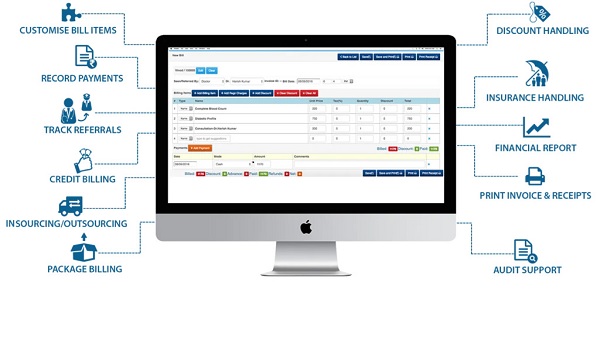
Figure 1. Medical billing software in healthcare
2. THREE TYPES OF BILLING SYSTEMS IN HEALTHCARE SOFTWARE OUTSOURCING IN HO CHI MINH CITY
2.1 Closed medical billing system
A closed system does not permit transfers. In the context of medical billing systems, this means that this system is focused on a single practice. Using EMRs, or electronic medical records, in your practice is the most obvious example of a closed system. EMRs are essentially digital versions of traditional paper charts. While this is still used in modern practices, it is mixed in with other types of records. EMRs are, as the name implies, closed systems. They do not permit collaboration with other doctors or medical facilities (i.e. labs, urgent care, etc.).

Figure 2. With closed billing systems, data stay private between specified clinicians
Closed medical billing systems are useful for small stand-alone practices with fewer physicians. However, if customers need to outsource revenue cycle management to a vendor, our healthcare software outsourcing in Ho Chi Minh City can convert the system to an open one.
2.2 Open medical billing system
In today’s healthcare industry, the most common type of medical billing system is an open medical billing system. It enables multiple healthcare providers to access a patient’s records. It also enables healthcare professionals to share information across multiple specialty practices or facilities. Every patient is given an EHR (electronic health record) number, also known as an EMR (electronic medical record) (electronic medical record). In this system, the patient’s medical history follows them electronically no matter what type of doctor they see.
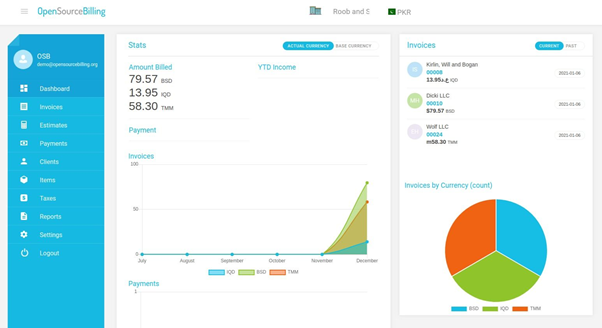
Figure 3. An open billing system allows for transfers across healthcare professionals, practices, facilities
With this model, any doctor in the network can update the record, and any other healthcare provider in the network can review the notes. However, this is only done if it is done in conjunction with providing medical care to the patient. Many compliance issues must be followed within this type of system, which does not allow anyone with access to the records to review them arbitrarily.
An open medical billing system can benefit large healthcare organizations with multiple departments because it provides flexibility. If a company is considering outsourcing medical billing to a third-party vendor, it should switch to an open billing system. It enables them to send data to outsourced medical billing professionals.
2.3 Isolated medical billing system
A closed medical billing system does not provide sufficient security for everyone. For the most privacy protection, our healthcare software outsourcing in Ho Chi Minh City usually suggests building an isolated billing system. Medical records cannot be kept at any healthcare facility or medical practice under this system. All of the patient’s medical records are kept by the individual. Doctors and other healthcare providers will be in charge of updating and managing those records. The physical records, on the other hand, are always in the patient’s possession. Medical professionals who use these systems must have software that allows them to update a patient’s records while retaining no information.
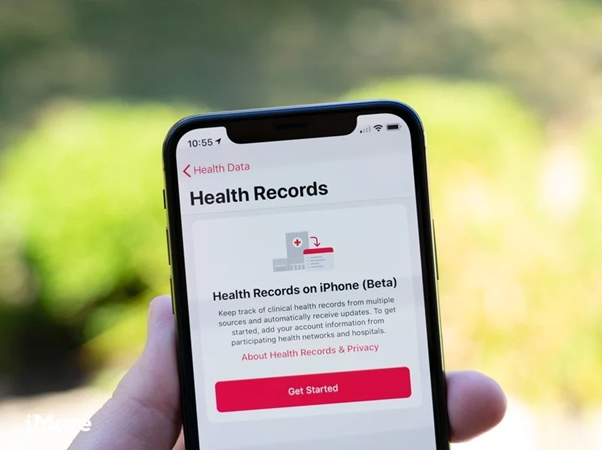
Figure 4. With an isolated medical billing system, patience manage their data
Isolated systems, as said before, are only for the use of patients. Only electronic medical records (EMRs) and electronic health records (EHRs) are legally recognized. PHRs will never be able to replace them.
3. WHAT DO YOU KNOW ABOUT THIRD-PARTY BILLING IN HEALTHCARE SOFTWARE OUTSOURCING IN HO CHI MINH CITY?
The term “third-party payment” refers to anybody paying for a medical solution that is not the patient. That could be a community entity or an independent one. The government can use more funds got from available staff taxes rather than insurance premiums to pay healthcare providers.
Outsourcing work to a third-party medical billing business assures that trained personnel are focused on billing, coding, claims, and collections.This minimizes administrative strain on practice employees, streamlines operations, reduces submission mistakes, and speeds up payment cycle closure.
4. WHAT IS A MODIFIER IN MEDICAL BILLING?
Based on the CMS and AMA, the modifier offers the means to report or show that a service or procedure might be done and changed by a particular circumstance; but not altered in meaning.
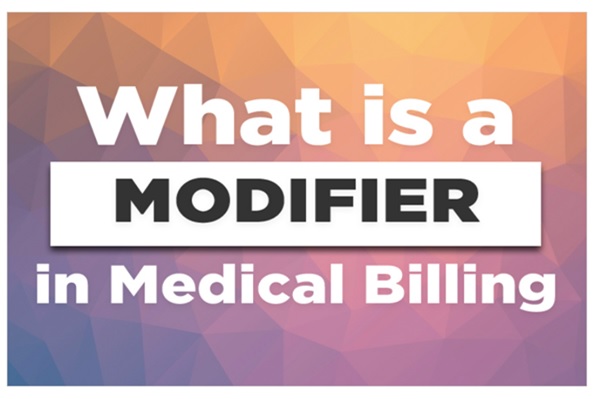
Figure 5. A modifier in medical billing
The correct use of modifiers is critical for both proper invoicing and reimbursement. Failure to include modifiers may influence reimbursements and result in timely rejections.
5. PROS AND CONS THREE KINDS OF BILLING SYSTEMS IN HEALTHCARE SOFTWARE OUTSOURCING IN HO CHI MINH CITY.
5.1 OPEN BILLING SYSTEMS
Advantages
- Improved Care Quality
-
- Improve documentation accuracy, making diagnosis and claims submission easier and faster.
- Begin treatments as soon as possible, with automated alerts highlighting potential risks.
- Track and manage medications in one place, and include drug-drug interaction alerts.
- Make preventive care easier to track and implement.
- Increase support for decision-making at the point of care.
- Easier and more effective integration of evidence-based clinical guidelines.
- Convenience for the patients
An EHR system will typically include a portal that patients can use to access their own medical records. This eliminates the need for the patient to make unnecessary phone calls or appointments to obtain information that he or she can easily access electronically on his or her own.
- Financial Incentives
A certified EHR system can assist a physician’s office in meeting Medicare and Medicaid Meaningful Use requirements, allowing them to take advantage of federal government incentives.
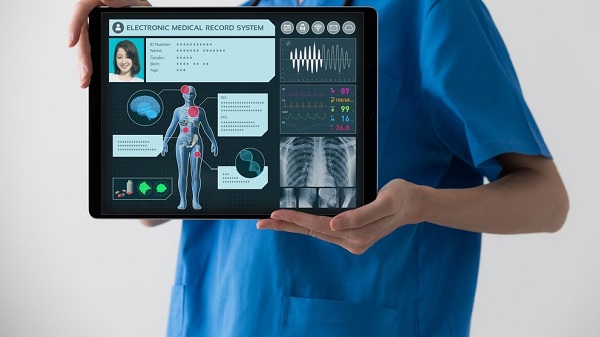
Figure 6. Electronic health record software
Disadvantages
- Inaccurate Data
Anyone accessing an EHR could be receiving inaccurate or partial information if it is not updated right once after new information is learned, such as after an exam or after test results are received. For the issuing practitioner as well as any specialists, pharmacists, physical therapists, or personal trainers involved in the patient’s care, this could result in later errors in diagnosis, treatment, and health outcomes.
- Concerns About Malpractice Liability
Installing an EHR system raises a number of liability issues, such as how to prevent the loss or destruction of sensitive medical data when moving from paper to electronic records. Errors in treatment could result from this in turn. Doctors may be held accountable if they are unable to obtain all of the medical information at their disposal, especially if that information is meant to be easier to get since it is electronic.
5.2 CLOSED BILLING SYSTEMS
Advantages
- Privacy and security
Before EMR systems can be used, they must meet several encryption requirements. This ensures that the patient information entered into the system is secure and confidential, in accordance with data privacy laws and regulations.
EMR systems use a variety of security measures, such as data encryption and two-factor authentication (2FA), to ensure that only authorized personnel can access the system.
- Efficient processes for report and billing generation
An EMR system enables users to quickly and easily generate and print patient charts, reports, lab and exam results, medical certifications, prescriptions, and more. Reports and prescriptions don’t need to be manually written. This allows you to improve staff productivity and work efficiency. You also lessen the chance of giving the wrong diagnosis. Also, you aid in the comprehension of your notes by your employees on patient consultation forms.
Disadvantages
- Risk to security from cyber attacks
Cybercrime is a risk since cloud-based EMR systems save your patients’ private information. To obtain private data and utilize it for fraud, identity theft, and other related crimes, malevolent intruders like hackers may try to break into the system.
So, it is essential on your end to guarantee that the EMR system you use in your clinic or hospital has the necessary security features to keep such nefarious people out.
- Will require staffing training
EMR systems can be quite complex for medical staff, especially those who are not as experienced with software and applications. As a result, you may need to require your team to go through software training. Of course, keep in mind that conducting training sessions will incur additional costs.
Aside from that, you and your staff will be required to spend less time with your patients during the training period. This could have a negative impact on how you address patient needs.
5.3 ISOLATED BILLING SYSTEM
Advantages
The patient has complete control and ownership of their own medical data with PHRs. This means that the patient can select from a broader range of healthcare businesses or clinics when seeking treatments or procedures.
PHRs also help people understand their health-care finances, whether it’s about their medical insurance plans or the cost of treatments or services that aren’t covered by insurance. This can also give people more control over how they plan their healthy lifestyles and when they choose to have specific treatments or procedures.
Disadvantages
The obvious disadvantage of PHRs is that they are not used by clinics, hospitals, or other medical institutions. The health-related information in a PHR is not readily useful to medical professionals because it is intended to be understood only by the individual. In other words, PHRs are not a replacement for EMRs or EHRs.
Conclusion
Every system has advantages and disadvantages. All healthcare providers would benefit from using a system that allows them to interact with all three types of billing systems. If you still wondering which type of billing system is more suitable for your organization, our healthcare software outsourcing in Ho Chi Minh city is ready to help.
Sources: Internet
——————————
L4 STUDIO – LEADING SOFTWARE DEVELOPMENT COMPANY IN VIETNAM
Website: https://l4studio.net/
Email: hi@l4studio.net
Phone: (+84) 28 6675 6685
Our Mobile App Development Services: https://l4studio.net/mobile-app-development/
Our Healthcare Software Development Services: https://l4studio.net/healthcare-software-development-services/
For more interesting blogs: https://l4studio.net/it-knowledge/
Follow us at: https://www.facebook.com/L4Studiovn/
